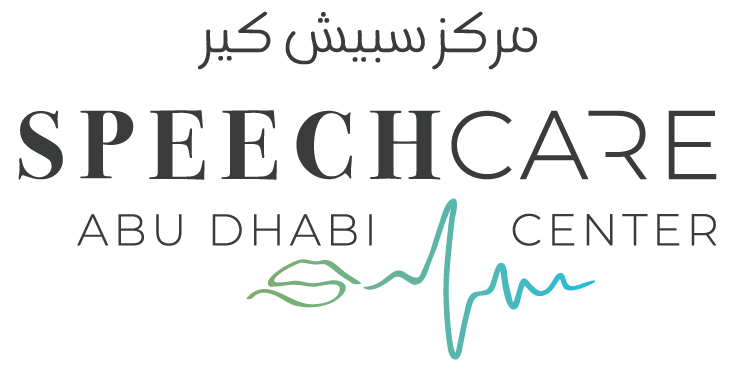Assessment and intervention
We are here to help with our team of experienced Speech and Language Therapists.
You can schedule an appointment, online or in person with our team,
Contacts here.
Contact us, if you are worried because the child is facing challenges in one or more of these skills:
- Social interactions
- Communication
- Language
- Speaking
- Reading
- Writing
We will carry out a thorough assessment having into account
A comprehensive individual history (composed of clinical and developmental information, as well as social and family environment)
The child’s performance based on the use of specific resources that allow an authentic assessment.
The intervention is
Discussed with family
Adjusted to the child’s and family's needs
Based on the best evidence and practices
Speech and language therapy
Family and Context Centered Practices
We undertake family and child centered practices backed by research and experience.
At our center, we provide therapy backed by research, and led by experienced Speech and Language Therapists, who are supported, whenever needed, by a collaborative team, e.g., other healthcare professionals and education professionals.
At SpeechCare we provide children and families with personalized treatment
Knowing that approximately 10% of children have communication, language and speech needs we provide personalized treatment, focused on environment, expected stage of development and, most importantly, current, and future well-being.

Appointments at our center
Are you looking for specialized speech and language therapy support?
Any age is the right to start
...but starting as early as possible is of crucial importance
Read the following alert signs per specific age range:
- Does not produce the vowels /a/, /e/, /i/, /o/ and /u/
- Does not react to his/her name
- Does not establish eye contact
- Does not imitate adult’s actions or babbles
- Cannot identify some common objects
- Cannot understand simple orders (give, say goodbye)
- Does not use words or no longer uses them
- Cannot say the name of familiar objects (especially for children aged 18-24 months)
- Doesn’t make requests (especially for children aged 18-24 months)
- Does not combine two words in a sentence (especially for children aged 18-24 months)
- Does not say what objects are for
- Does not use between 500 and 800 words on average (focused on children between 3 and 4 years old)
- Does not make an action-image association
- Does not understand or ask simple questions
- Does not show imaginary or symbolic play
- Does not answer simple questions (e.g. “Who?”, “Where?” and “What?”)
- Has difficulties producing any of the following sounds: /p/, /t/, /k/, /b/, /d/, /g/, /m/, /n/, /nh/, /f/, /v/, /z/, /s/, /ch/ and /j/
- Cannot answer complex questions (e.g. “How?” “How many?” “Why?”)
- Does not understand orders of three ideas (e.g. “Give the red pencil, put it inside the case and put the bag away”))
- Cannot understand notions relating to position (In front, Behind, In, Out)
- Does not describe everyday events
- Uses only short, simple sentences
- Cannot express him/herself and only uses gestures
- Does not understand complex orders with more than four or five ideas
- Does not use between 1500 and 2000 words
- Does not use irregular plurals
- Has difficulties producing any of these sounds: /p/, /t/, /k/, /b/, /d/, /g/, /m/, /n/, /nh/, /f/, /v/, /z/, /s/, /ch/, /j/, /l/, /R/, /lh/, /r/
- Cannot define simple and abstract concepts.
- Cannot tell everyday life and stories
- Cannot use complex sentences
- Cannot understand notions of space and time
- Has no command of verb forms
- Cannot perform or identify rhymes
- Cannot divide words into syllables
- Difficulties in producing sounds orally (/p/, /t/, /k/, /b/, /d8/, /g/, /m/, /n/, /nh/, /f/, /v/, /z/, /s/, /ch/, /j/, /R/, /l/, /r/, /lh/ (concerning for all school years)
- Produces grammatically incorrect sentences orally
- Presents a poor vocabulary and difficulties in applying it effectively
- Lacks coherence and cohesion in spoken discourse
- Difficulties in following simple and complex verbal orders
- Difficulties at the level of phonological awareness (rhyming, syllabic division, syllabic manipulation, identifying and saying words by their initial syllable/sound, phonemic manipulation)
- Difficulties in identifying and naming letters
- Difficulties in reading/writing simple syllables (CV)
- Difficulties in reading/writing words
- Exchanges in the sound/letter relationship (e.g., b for p, d for t, g for k, v for f, z for s, j for ch; z for j; ch for s) (concerning for all school years, especially in years 2, 3 and 4)
- Difficulties in reading/writing sentences (concerning for all, mainly for years 2, 3 and 4)
- Difficulties in reading texts: 2nd year around 90 words per minute; 3rd year around 110 words per minute; 4th year around 125 words per minute
- Difficulties in identifying the main idea of a text read (mainly worrying for 2nd, 3rd and 4th years of schooling)
- Difficulties in answering questions on interpretation (mainly concerning Years 2, 3 and 4)
- Difficulties in writing coherent and cohesive texts (especially concerning the end of Year 2 and Year 3 and 4)

